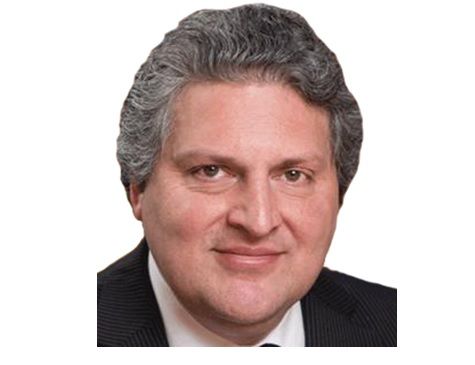“Barclays PLC and Barclays Bank PLC … note the recent press speculation regarding the potential appointment of Mr James Staley as its new Group Chief Executive Officer. The process of appointing a new Group Chief Executive Officer has not yet concluded and Barclays will provide a further update once that is complete”.
Thus begins, hesitantly and rather bizarrely, Jes Staley’s tenure as the new Barclays CEO: with a weird not-quite-denial. Not a very elegant start. OK, Staley hasn’t been formally appointed but I gather he’s accepted the job and it now goes to regulatory approval so it’s all but a done deal …
The day after his predecessor Antony Jenkins had been fired on July 8, I’d listed a group of pretenders to the job and said Staley – who was effectively also fired in 2013 from his role as chief of JP Morgan’s investment bank by a peevish Jamie Dimon – was a rank outsider. I absolutely stand by that assessment. Given the other candidates (much better suited on paper) on that phantom list, I’m beyond flabbergasted that Barclays went for Staley. “Nice guy; firm handshake and an expensive dentist”, one cheeky and rather dismissive source told me.
From where I sit, head hunters Spencer Stuart did little more than blow the dust off the list of candidates that they’d assembled after the firm had been hired to find a replacement for ousted Bob Diamond back in 2012; figured that many of those were no longer available; erased those who were available but who didn’t want the job (including Morgan Stanley’s Colm Kelleher); and crossed off internal appointments (which had the odds weighted against them anyway and I gather CFO Tusher Morzaria didn’t even apply). They ended up with a shortlist of one. Hardly imaginative but nice work if you can get it!
The fact that Barclays’ share price was 3.5% below yesterday’s close at one point this afternoon surely tells you all you need to know, even in a generally down day for bank stocks. Appointing a CEO is one HUGE uncertainty removed and should surely have been greeted more positively. Or even positively. The sell-off confirms that no-one really gets it. It’s a weird and confounding appointment that has had pretty much everyone scratching their heads. And one that I think has had a lot of people potentially getting the wrong idea about what the appointment means.
IB focus?
Here’s my view: Staley’s appointment will NOT mean a renewed focus on the investment bank as in building out the business, as some of the bank analysts have said. The RWA tasking which the division has been given will not be reversed. The regulatory environment in the UK that is forcing retail ring-fencing makes that a fact, in my view.
Sure, executive chairman John McFarlane has been making positive noises about investment banking for the past few months. Witness his support for Tom King in that row with Jenkins a few months ago, or his comments to the FT about European investment banks needing to merge to create a regional champion to compete with US rivals.
For better or for worse, Barclays is stuck with an outsize investment bank that will always be important for the group. But the bank isn’t going to radically change tack now. I’m sure Staley will face an imperative to improve the investment bank’s returns but I’ll eat my proverbial hat if he’s given more capital to play with and is allowed to grow RWAs.
(By the way, I stand by my comments made in July that CIB head Tom King isn’t long for the Barclays world. I’ve got a feeling that he could depart sooner than many people think.)
I wonder if Staley really knows what lies in store for him. The regulatory imperatives; the political element, slasher McFarlane standing right behind him, knives unsheathed for all eventualities; dealing with the retail and consumer element of which he has no experience. My gut tells me he hasn’t spent a lot of time deeply scrutinising the complex landscape. One thing’s for sure: the days when you could get compensated for dealing with that stuff are long gone.
Timing
On the rather odd timing of the Staley appointment, sources close to the situation said this was partly a result of an illness McFarlane succumbed to over the summer. It wasn’t a particularly serious illness, I understand, but having the man acting as both CEO and chairman out of action even for a short time underlined key-man risk. And with that in mind, I’m told, the board insisted that he name a CEO now rather than waiting until early next year as he had originally wanted. Forcing proper governance is probably the best thing the bank’s divided board has done for quite some time.
I think McFarlane is central to the Barclays story. He’s clearly looking to secure his place in the history of Barclays as the turnaround supremo. My fear is that the bank’s strategy will be based on a work-back based on the length of his tenure as chairman and that he forces through some short-term measures guaranteed to benefit himself and his legacy rather than the long-term future of the group.
Put it this way, having a career US investment banker at the helm of a bank with a chunky retail and consumer franchise of which he has no experience, and with a mandate to curb the power of the investment bank, strikes me as an odd way to proceed.
